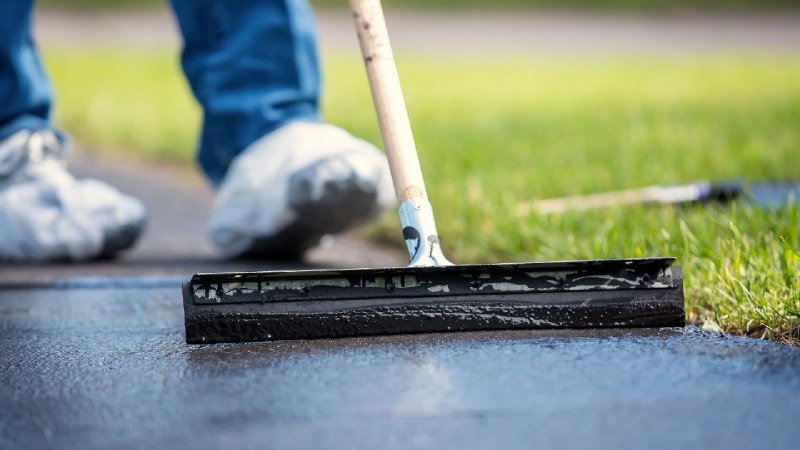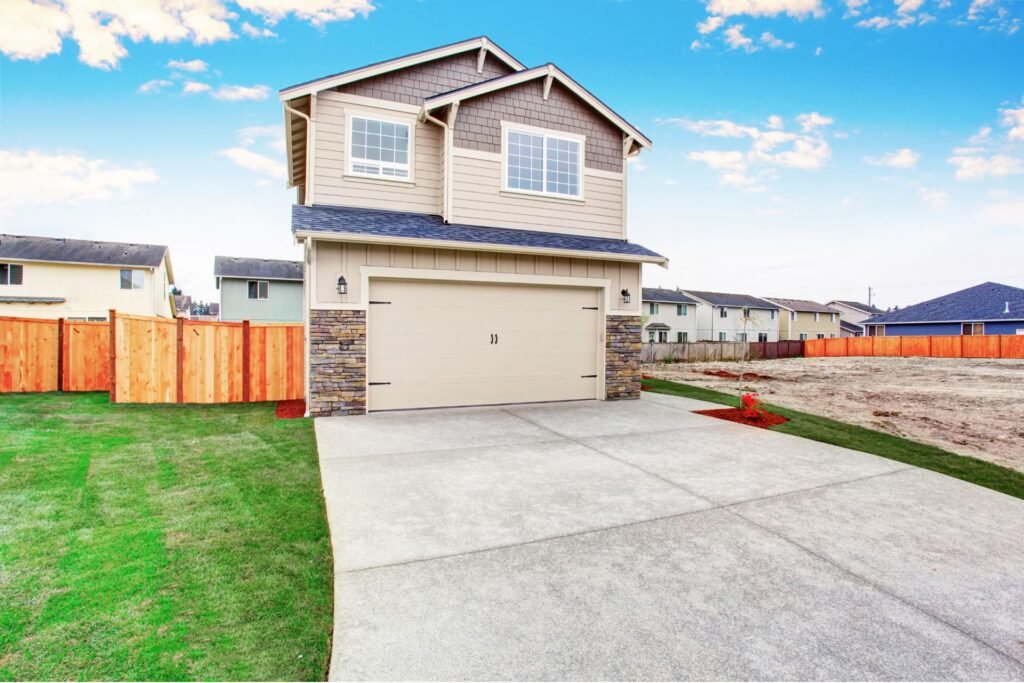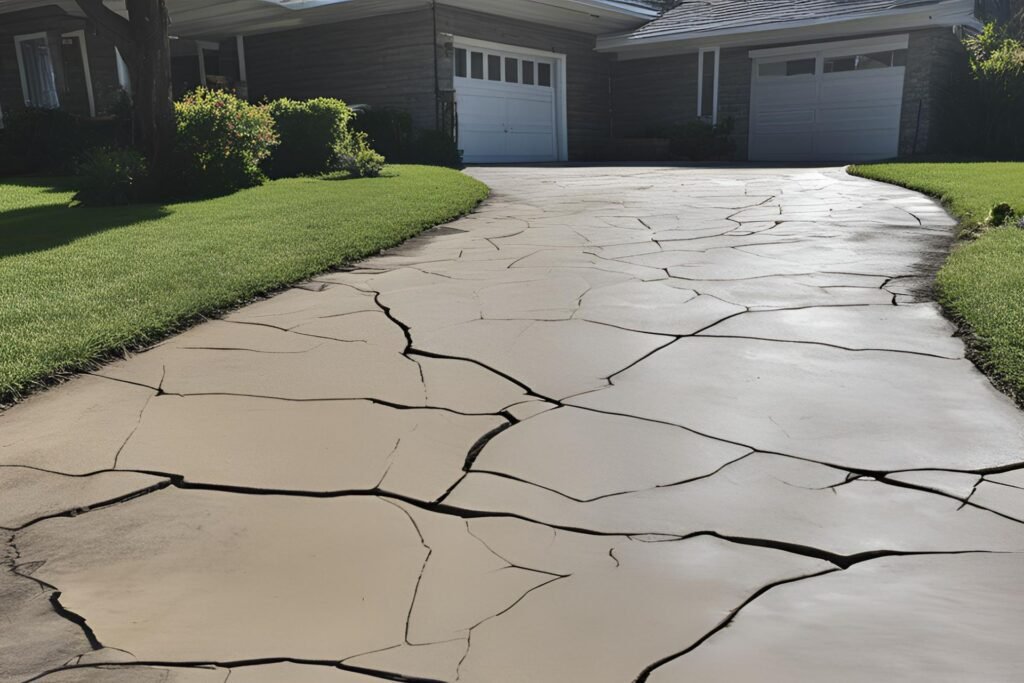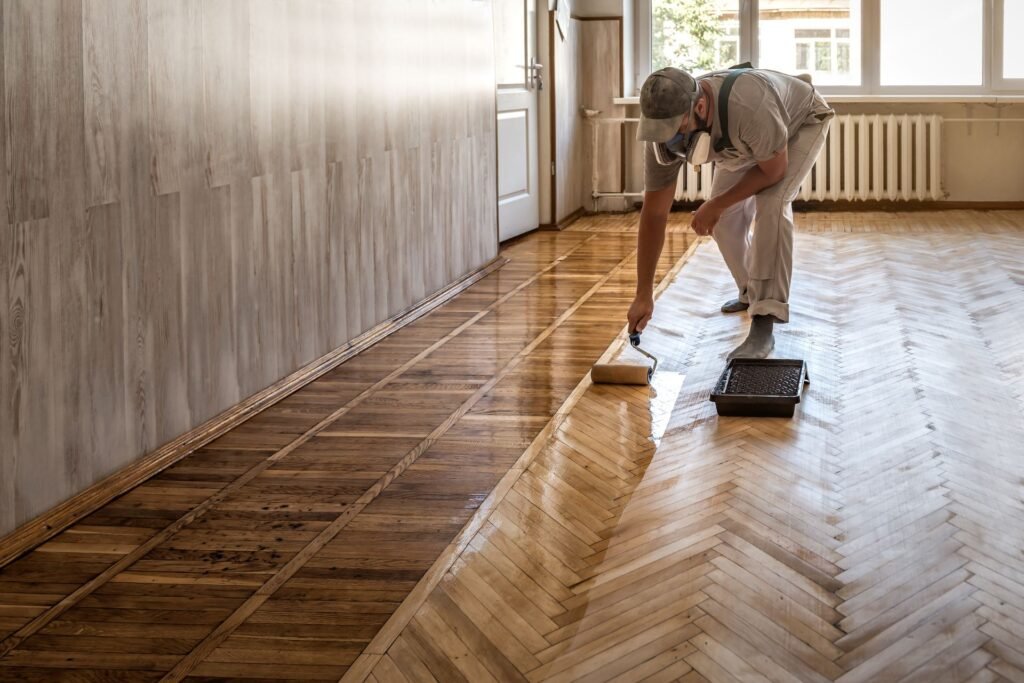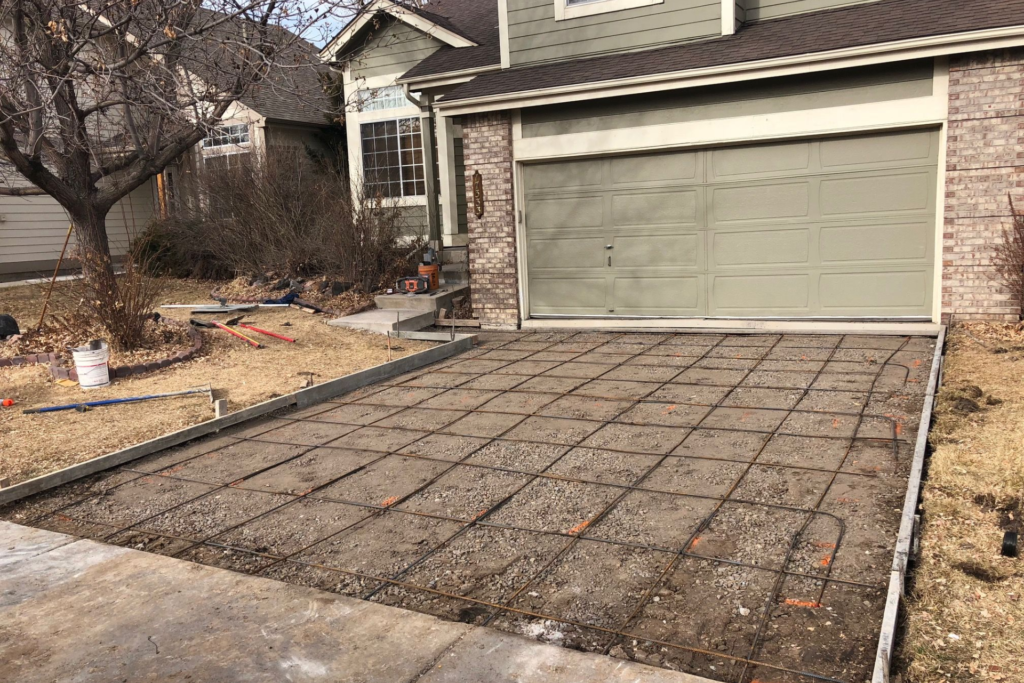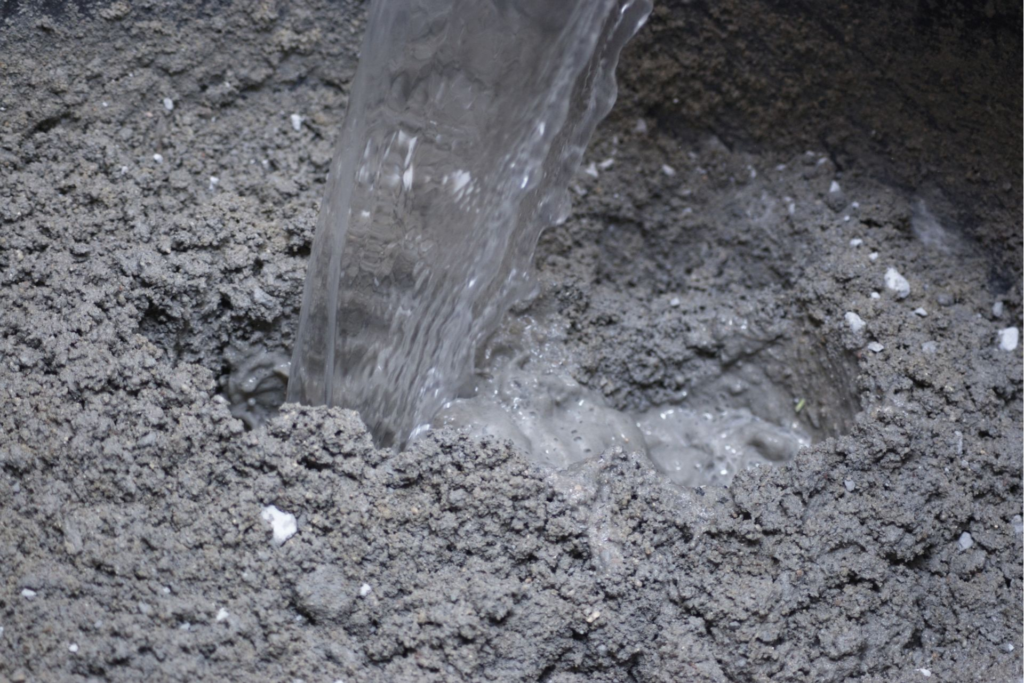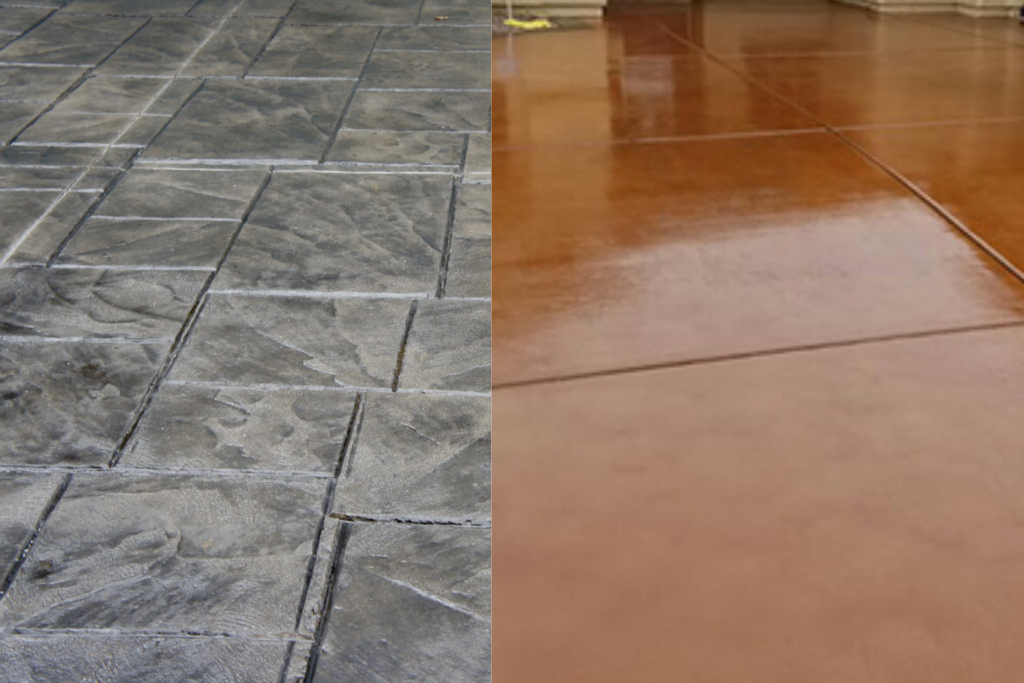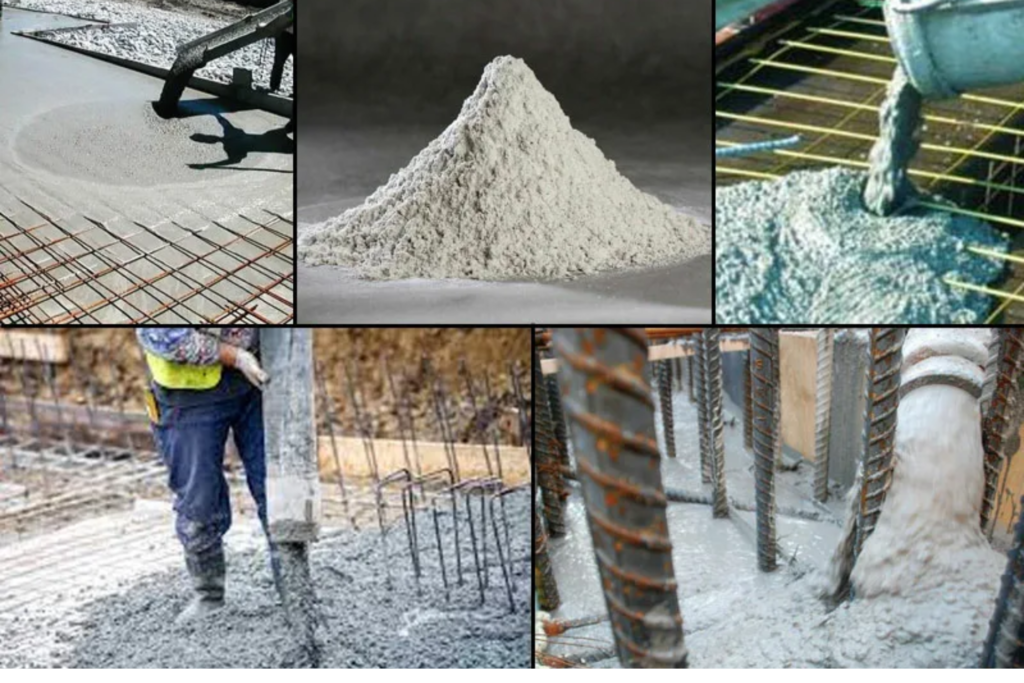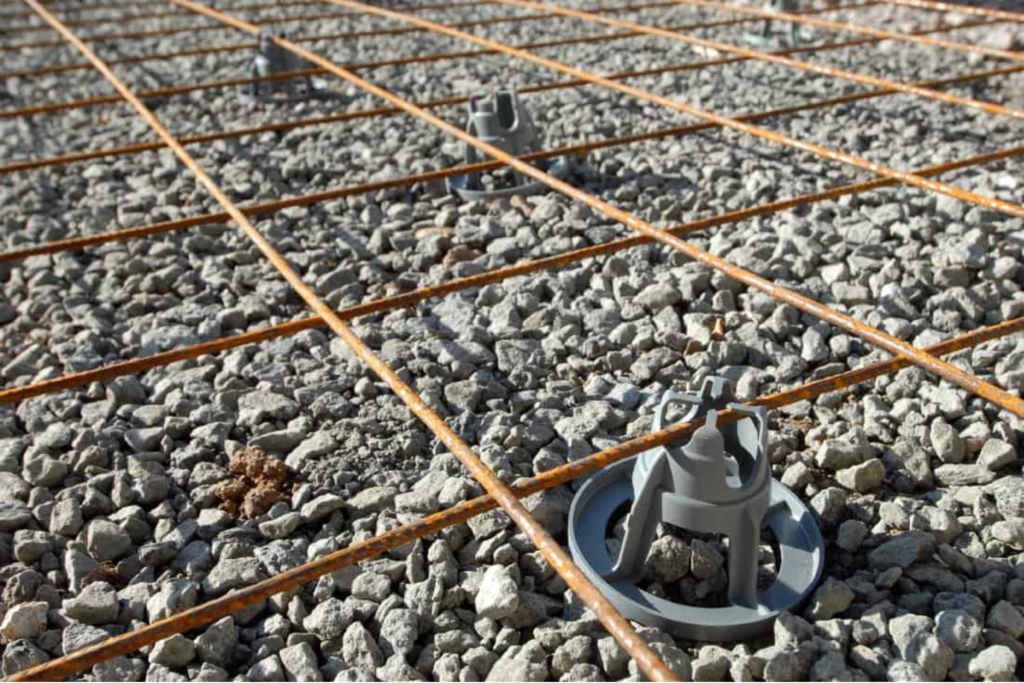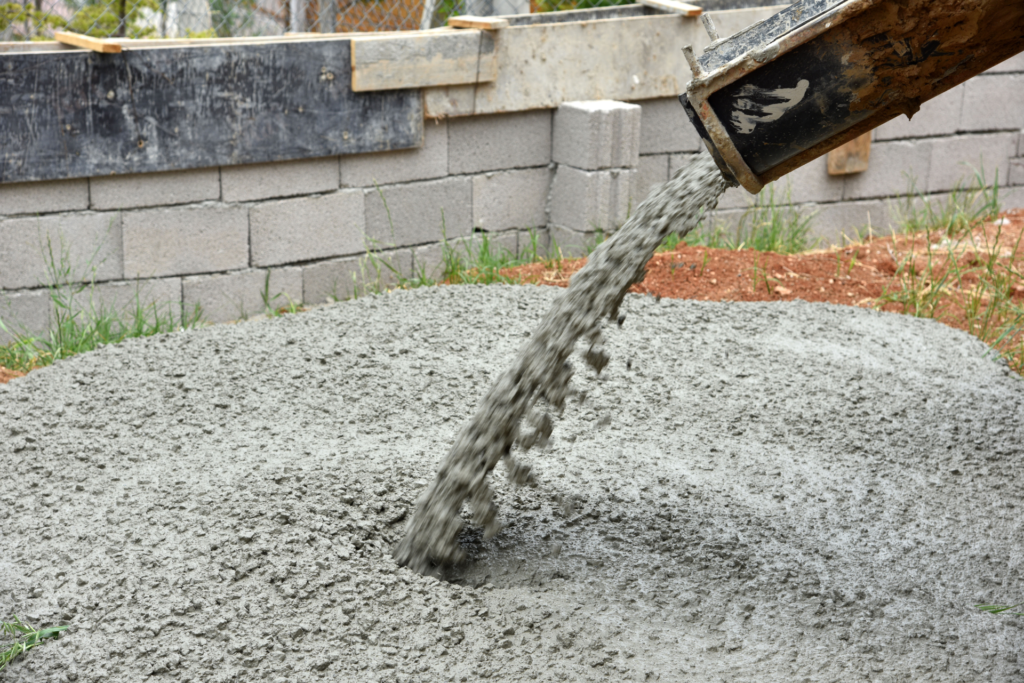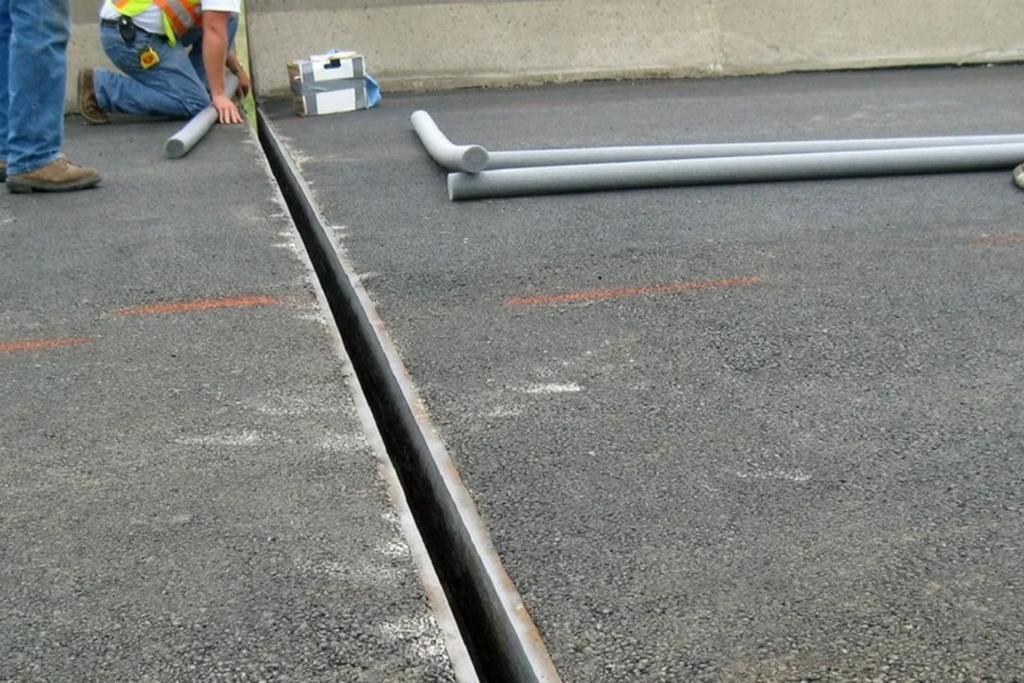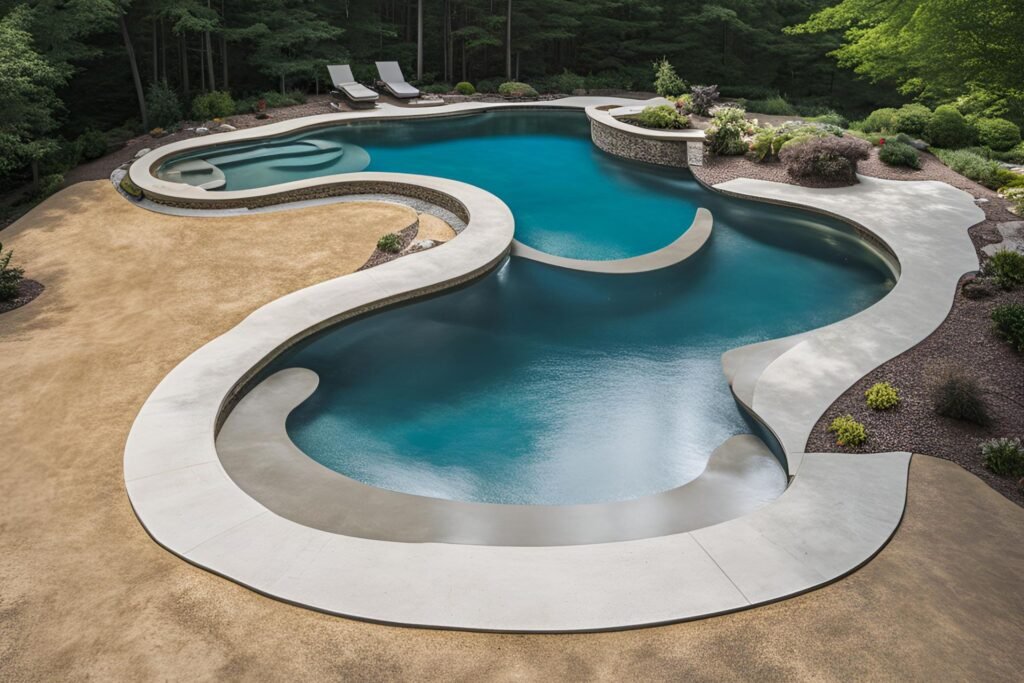Welcome to our comprehensive guide on whether it is necessary to seal a concrete driveway. If you’re a homeowner looking to protect your investment, you might be wondering whether sealing your driveway is a must-do or just an extra step. Over time, driveways endure a lot of wear and tear from harsh weather, vehicle traffic, and chemicals like road salt, which can lead to cracks, fading, and erosion. In this guide, we’ll walk you through the benefits and downsides of sealing, explain when it’s truly necessary, and provide practical tips to help you make an informed decision. While sealing isn’t always essential, it can add significant value by enhancing the lifespan, appearance, and durability of your driveway. Let’s dive into everything you need to know.
Sealing a concrete driveway is not strictly necessary, but it is highly recommended to protect the surface from damage caused by weather, moisture, chemicals, and heavy traffic. Sealing can extend the lifespan of the driveway, prevent cracks and stains, and maintain its appearance. For most driveways, applying a sealer every 2-5 years is ideal, especially in climates with harsh winters or intense sun exposure.
Table of Contents
Understanding The Basics Of Concrete Driveways
A concrete driveway is a popular and practical choice for homeowners due to its strength, durability, and versatility. Whether you’re considering installing a new driveway or looking to maintain your existing one, understanding the basics of concrete driveways will help you make informed decisions.
What is a Concrete Driveway
A concrete driveway is a surface made of a mixture of cement, water, and aggregates like sand, gravel, or crushed stone. Once mixed, this blend is poured onto a pre-prepared base, leveled, and allowed to cure, resulting in a solid and smooth surface that can support the weight of vehicles and withstand the elements. Proper construction is essential to ensure the longevity of a driveway, with key elements such as base preparation, reinforcement (often using rebar or wire mesh), and proper curing time all contributing to its durability.
The Role of Concrete in Providing Strength and Durability
Concrete is widely recognized for its impressive strength and durability, making it an ideal material for driveways. The compressive strength of concrete allows it to handle heavy loads, such as vehicles, without buckling under pressure. This strength is a direct result of the chemical reaction that occurs as the cement hardens, binding the aggregates together into a robust, stone-like material.
Moreover, concrete’s natural durability is further enhanced when reinforced with steel or fibers. This reinforcement helps reduce the likelihood of cracking and supports the concrete’s ability to endure the constant stress of weather changes, heavy loads, and daily use. With proper care and installation, a concrete driveway can last for decades, offering a low-maintenance, long-term solution for homeowners.
The Natural Wear and Tear of Concrete
While concrete driveways are built to last, they are still subject to natural wear and tear over time. A variety of environmental factors and usage patterns can contribute to their degradation. Exposure to the elements, such as rain, snow, and extreme heat, can cause gradual erosion and surface damage. In areas where freezing and thawing cycles are common, concrete can expand and contract, leading to cracks that weaken the structure over time.
Vehicle traffic also plays a significant role in the wear of concrete driveways. The constant movement of cars, trucks, and other heavy vehicles puts strain on the surface, and over time, this can lead to small cracks, potholes, or surface deterioration. Additionally, the use of chemicals such as road salts or deicing agents during the winter months can accelerate the wear process. These substances can seep into the concrete’s surface, causing erosion, discoloration, and weakening of the material.
Common Issues with Concrete Driveways
Like any material, concrete is not immune to problems. Some common issues that homeowners may encounter include.
- Cracking: One of the most prevalent problems, cracks can occur due to a variety of reasons, including improper installation, temperature fluctuations, or soil movement underneath the driveway. Although small cracks are often just cosmetic, larger cracks can lead to more serious structural issues if left unattended.
- Discoloration: Over time, the once-bright appearance of a concrete driveway can fade or become uneven due to exposure to UV rays, chemicals, and everyday wear. While this doesn’t affect the functionality of the driveway, it can impact its curb appeal.
- Erosion: Water is one of the biggest enemies of concrete. Constant exposure to moisture, especially when combined with freeze-thaw cycles, can cause the surface to erode. Erosion can lead to surface pitting and can also make the driveway more susceptible to cracks.
While concrete driveways are renowned for their strength and longevity, they do require some care and attention over time to ensure they remain in good condition. Understanding the basics of concrete construction and being aware of the common issues can help homeowners maintain their driveways and extend their lifespan. By taking the time to properly install and maintain your concrete driveway, you can enjoy its benefits for many years to come, while keeping your property’s exterior looking polished and well-kept.

What Does Sealing A Concrete Driveway Do
When it comes to maintaining your concrete driveway, sealing is one of the most crucial steps. Sealing your driveway not only protects it from the elements but also enhances its appearance, increases its longevity, and prevents various kinds of damage. Let’s explore the importance of sealing a concrete driveway in detail.
What is Sealing
Sealing is the process of applying a protective coating over a concrete surface to safeguard it from wear, weather, and other potentially damaging factors. A concrete sealer forms a barrier on or within the surface that repels water, chemicals, oils, and more. This protective layer ensures that your driveway remains durable and aesthetically pleasing for years.
Concrete sealers come in two main types: penetrating and topical:
- Penetrating Sealers: These are designed to seep into the pores of the concrete, forming a protective shield below the surface. They are excellent for guarding against moisture penetration and freeze-thaw damage without altering the appearance of the concrete.
- Topical Sealers: These create a surface-level protective layer. They not only block moisture but also enhance the color and shine of the concrete. Topical sealers can add a glossy or matte finish depending on the product you choose.
The Benefits of Sealing a Concrete Driveway
- Protection from the Elements: Concrete driveways are constantly exposed to the elements, whether it’s harsh UV rays, rain, snow, or temperature fluctuations. Over time, this exposure can lead to erosion, discoloration, and weakening of the surface. A sealer forms a weather-resistant barrier, protecting the concrete from the damaging effects of these environmental factors. UV rays can cause fading and breakdown of materials, but with a sealed surface, your driveway will maintain its integrity and appearance much longer.
- Prevents Cracks & Erosion: In regions where freeze-thaw cycles occur, unsealed concrete is highly susceptible to cracking and erosion. Water can seep into the concrete’s pores, and when it freezes, it expands, leading to cracks and surface damage. By sealing your concrete driveway, you minimize water penetration, effectively reducing the chances of freeze-thaw damage. This prevents cracks from forming and safeguards the structural integrity of your driveway.
- Enhances Durability: Sealing significantly extends the lifespan of your concrete driveway. With the surface protected from water, chemicals, and other environmental hazards, it becomes more resilient against the wear and tear caused by daily use. A well-sealed driveway is less prone to pitting, cracking, and deterioration, meaning you won’t have to worry about costly repairs or resurfacing as often.
- Aesthetic Benefits: Sealing your concrete driveway isn’t just about protection—it’s also about keeping your driveway looking its best. A good quality sealer will enhance the color and texture of your concrete, giving it a fresh and polished look. It also prevents fading or discoloration caused by prolonged sun exposure. Whether you prefer a natural matte finish or a glossy, wet-look effect, sealing can preserve the original appearance of your driveway, making it an attractive feature of your home.
- Stain Resistance: Oil, grease, chemicals, and other substances can easily stain unsealed concrete. Once absorbed, these stains can be nearly impossible to remove, leaving unsightly marks on your driveway. Sealing helps create a non-porous surface that repels these substances, preventing them from seeping into the concrete. This makes it much easier to clean spills and maintain a spotless, stain-free driveway.
Sealing a concrete driveway is an essential step in protecting it from environmental damage, preventing cracks and erosion, enhancing durability, and keeping it looking fresh and clean. By choosing the right sealer and applying it properly, you can extend the life of your driveway and keep it in top condition for years to come. Whether you’re interested in protecting your investment or improving the appearance of your home, sealing is a smart and cost-effective solution.

Do You Really Need To Seal A Concrete Driveway
When it comes to maintaining your concrete driveway, the question often arises: is sealing really necessary. While sealing offers undeniable benefits, it isn’t always required for every driveway. Let’s explore the situations where sealing might not be needed and the key factors to consider before making a decision.
When Sealing is Not Necessary
There are scenarios where sealing your concrete driveway may not be necessary at all. For instance, if you live in a region with a mild climate, the freeze-thaw cycles that can damage concrete may not be a concern. In these cases, your driveway might remain in good condition for years without the need for additional protection.
Additionally, if the concrete used for your driveway contains built-in protection, such as special additives or water-repellent materials, sealing may offer limited benefits. These additives are designed to enhance the durability of the concrete, making sealing less critical in preserving the integrity of the surface.
Factors to Consider Before Sealing
Before deciding whether to seal your concrete driveway, it’s important to weigh a few critical factors.
- Climate Conditions: If you live in an area with harsh winters or intense sun, sealing becomes more important. In colder climates, the freeze-thaw cycles can cause concrete to crack and deteriorate over time. Sealing provides a protective layer that helps prevent water from penetrating the surface and freezing inside, reducing the risk of damage. In hot, sunny areas, sealing can also protect against the sun’s UV rays, which can lead to fading and weakening of the concrete.
- Traffic Volume: Consider the amount and type of traffic your driveway regularly handles. If your driveway sees heavy vehicle use, especially from large trucks or SUVs, the constant wear and tear can take a toll on the concrete surface. Sealing can help mitigate this by creating a barrier that resists oil, gasoline, and other contaminants that can damage the concrete over time.
- Aesthetic Goals: If maintaining the appearance of your driveway is a priority, sealing may be worth the investment. Sealing can help keep your driveway looking new for longer by protecting against stains, discoloration, and surface wear. It also enhances the natural color of the concrete, giving it a fresh, polished appearance.
Alternatives to Sealing
If you decide that sealing isn’t necessary for your driveway, there are other ways to ensure its longevity. Regular cleaning and proper maintenance can go a long way in preserving the concrete surface. This includes sweeping away debris, removing stains promptly, and addressing any small cracks before they become larger issues.
While sealing a concrete driveway can provide extra protection and enhance its appearance, it’s not always required. By considering factors like climate, traffic, and your aesthetic preferences, you can make an informed decision that fits your needs. And if sealing isn’t the right option for you, diligent upkeep and maintenance will still help keep your driveway in excellent condition.
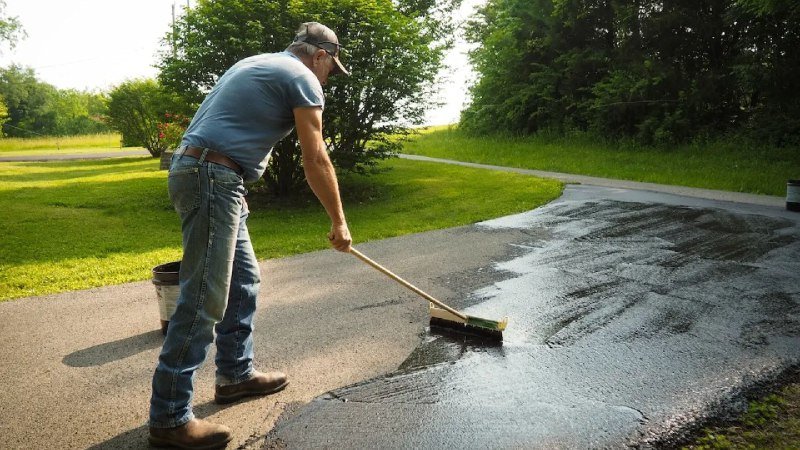
How Often Should You Seal A Concrete Driveway
This is a common question for homeowners looking to protect their investment and maintain curb appeal. A concrete driveway, while durable, is still susceptible to the elements, wear and tear, and chemical exposure. To ensure it lasts for years, applying a sealant is essential. But how often should you reseal your driveway to keep it in top condition? Let’s dive into the details.
General Recommendations for Sealing a Concrete Driveway
As a general rule of thumb, concrete driveways should be sealed every 2-5 years. This timeline can vary based on several factors, including your local climate and how much traffic the driveway handles. In areas with harsh winters, exposure to de-icing salts, and significant temperature fluctuations, sealing might need to happen closer to every two years. Conversely, in milder climates with fewer extreme weather conditions, sealing can be stretched to the five-year mark.
Regularly applying a concrete sealant helps protect your driveway from water absorption, cracking, staining, and damage caused by chemicals or UV rays. Without this layer of protection, your driveway can age prematurely, leading to costly repairs down the road.
Signs That It’s Time to Reseal Your Driveway
If you’re unsure whether your driveway needs to be resealed, there are some clear signs to watch out for.
- Fading Color: Over time, the vibrant appearance of a sealed driveway can fade due to sunlight exposure and wear. If your driveway starts to lose its original color and looks dull, this is a sign that the sealant is breaking down.
- Water No Longer Beads on the Surface: A freshly sealed concrete driveway will repel water, causing it to bead up on the surface. If you notice that rainwater is soaking into the concrete rather than beading, it means the sealant has worn off and the concrete is now vulnerable to moisture damage.
- Visible Cracks or Damage: Small cracks, chips, or any visible signs of wear are clear indicators that the protective layer of sealant has degraded. Ignoring these signs can lead to larger cracks and more extensive damage over time.
Factors That Affect How Often You Should Seal
Several factors can influence how often your driveway needs resealing. The frequency can vary based on the following.
- Exposure to UV Rays: Prolonged exposure to sunlight, especially in areas with high UV levels, can break down the sealant faster, causing it to wear out sooner than expected. This is particularly common in sunny regions where driveways are exposed to direct sunlight for most of the day.
- De-Icing Chemicals: In colder climates, de-icing chemicals such as salt can be particularly harsh on concrete surfaces. These chemicals can wear down the sealant and cause it to degrade more quickly, meaning you’ll need to reseal more often to keep the driveway protected.
- Extreme Weather Conditions: Regions with extreme weather variations like freezing winters and hot summers can lead to expansion and contraction in the concrete, which can cause cracks and wear down the sealant. Homeowners in such areas may need to reseal their driveways more frequently to prevent damage.
Maintaining your concrete driveway with regular sealing is key to ensuring its longevity and appearance. Most driveways should be sealed every 2-5 years, but keeping an eye on the specific conditions your driveway endures like UV exposure, chemical contact, and weather extremes can help you determine the best time to reseal. By staying proactive and watching for signs like fading color and water absorption, you can keep your driveway looking fresh and prevent costly repairs down the line. If you want to extend the life of your driveway, pay attention to these factors and reseal as needed. It’s a small investment of time and money that can save you from bigger headaches in the future.
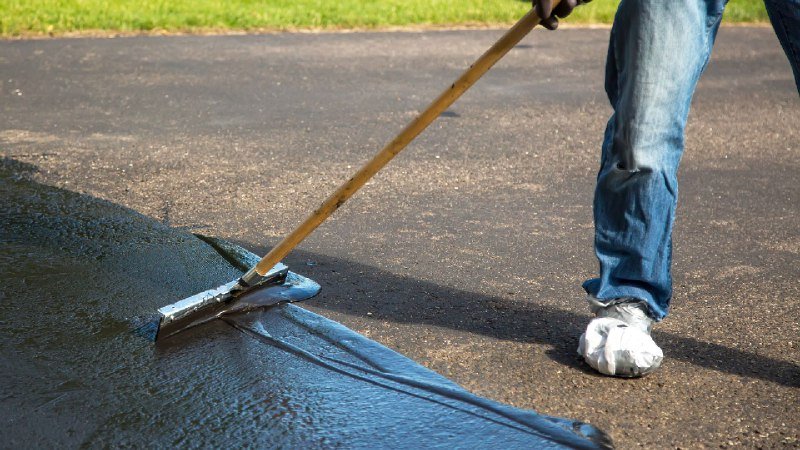
Pros And Cons Of Sealing A Concrete Driveway
When it comes to maintaining your concrete driveway, sealing is often recommended to enhance its longevity and appearance. However, like any home improvement task, sealing your concrete driveway has both advantages and disadvantages. Understanding these pros and cons can help you make an informed decision that suits your specific needs and budget.
The Pros of Sealing a Concrete Driveway
Sealing your concrete driveway offers several clear benefits, making it an attractive option for homeowners looking to protect their investment.
- Enhanced Protection: One of the main reasons people choose to seal their concrete driveway is for the added layer of protection. A sealer acts as a barrier that shields the surface from various elements such as moisture, chemicals, and de-icing salts. This protection is essential in preventing cracking, scaling, and staining that can occur due to water penetration or exposure to harsh substances. Over time, sealed driveways experience fewer issues related to freeze-thaw cycles, reducing the likelihood of costly repairs.
- Increased Durability: Concrete is a durable material by nature, but a sealer can take that durability to the next level. When properly applied, the sealer strengthens the surface, helping it resist wear and tear from heavy vehicles, foot traffic, and everyday use. This increased durability means your driveway is less prone to damage, allowing it to stay in better shape for longer.
- Improved Aesthetics: Sealing your driveway can also significantly improve its appearance. A sealer can give your concrete a fresh, glossy finish that enhances its color and texture, making it look new again. For those who want a more polished or wet look, some sealers provide a high-gloss finish that enhances curb appeal. Additionally, a well-sealed driveway can increase your home’s overall value by boosting its visual appeal.
- Stain Resistance: Another important advantage of sealing is that it helps resist stains from oil, grease, and other substances that can spill on your driveway. This is particularly useful for driveways exposed to vehicles that may leak fluids. The sealer prevents these materials from penetrating the surface, making clean-up easier and more effective.
The Cons of Sealing a Concrete Driveway
While sealing your concrete driveway offers several benefits, it’s not without its downsides. Some potential drawbacks may influence your decision.
- Cost: One of the most significant cons of sealing is the cost. The initial investment for high-quality sealers and professional application can be expensive. Depending on the size of your driveway, the cost can add up quickly. Even if you opt for a DIY approach, you’ll still need to invest in the proper tools and materials. Additionally, sealing isn’t a one-time job; regular reapplication is necessary to maintain its protective benefits. This ongoing maintenance adds to the overall cost over time.
- Time and Effort: Sealing a concrete driveway, especially as a DIY project, can be labor-intensive. Preparing the surface is crucial for proper adhesion, and this often involves cleaning, removing stains, and possibly repairing cracks. Once the preparation is done, applying the sealer requires time and attention to detail. If you plan to tackle the project on your own, be prepared to spend a significant amount of time and effort to ensure it’s done correctly. Hiring professionals can reduce the workload but increases the expense.
- Slipperiness: Some sealers, particularly those with a glossy finish, can make the surface slippery when wet. This can pose a safety hazard, especially in regions that experience frequent rain or snow. If traction is a concern, you’ll need to consider a sealer with a non-slip additive, which can raise the overall cost.
- Potential for Peeling or Blistering: Improper application of a concrete sealer can lead to issues such as peeling or blistering. This happens when the surface is not thoroughly cleaned, dried, or prepared before sealing, causing the sealer to fail to bond properly with the concrete. Humidity and weather conditions during application can also play a role in how well the sealer adheres. These problems can detract from the overall look of your driveway and may require you to remove and reapply the sealer, adding extra time and cost to the project.
Sealing a concrete driveway comes with a mix of benefits and challenges. On the positive side, it enhances protection, durability, and aesthetics, offering a significant return on investment for many homeowners. However, the costs, time, and potential risks involved may be deterrents for some. Carefully weighing these pros and cons can help you determine if sealing is the right choice for your driveway.
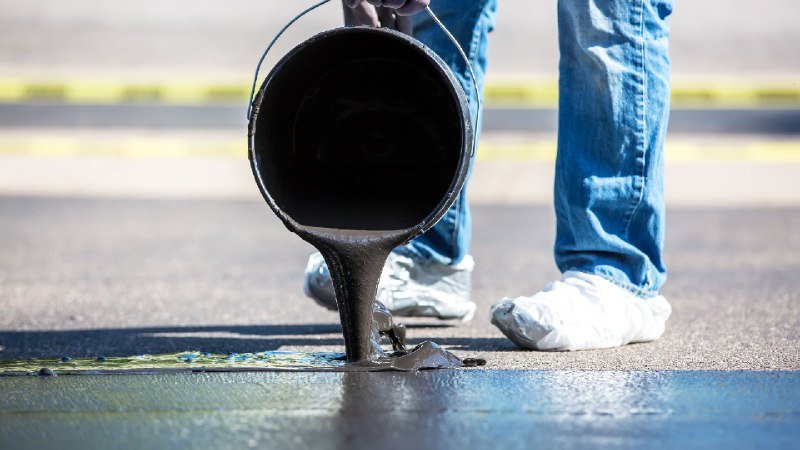
DIY Vs. Professional Sealing
When it comes to sealing your concrete driveway, the choice between doing it yourself (DIY) or hiring a professional can make all the difference in the longevity and appearance of your driveway. Both options come with their own set of advantages and drawbacks. Here’s a detailed breakdown to help you make the right decision for your home and budget.
DIY Sealing
If you prefer hands-on home improvement projects, DIY concrete sealing might seem like a rewarding and cost-effective option. Here’s what’s involved and what you need to know.
- Cleaning: Start by thoroughly cleaning the driveway. Remove dirt, stains, and debris using a pressure washer and a good concrete cleaner. Any residue left behind can affect how well the sealer adheres.
- Selecting the Sealer: Not all sealers are created equal. You need to choose a high-quality concrete sealer suitable for your climate and driveway type (e.g., water-based or solvent-based).
- Applying the Sealer: Use a roller or sprayer to apply the sealer evenly across the surface. It’s important to apply it in thin, even coats to avoid pooling or streaking.
- Drying Time: After applying the sealer, let it dry completely, which can take anywhere from 24 to 48 hours depending on the weather conditions. Keep foot and vehicle traffic off the driveway during this time.
Pros of DIY Sealing
- Cost-Effective: DIY sealing is usually much cheaper upfront compared to hiring a professional. The main expenses are the sealer and any tools you might need, like a sprayer or roller.
- Flexible Timing: You can do the project on your own schedule, which is especially convenient if you have a busy routine. No need to wait for a contractor to fit you into their calendar.
Cons of DIY Sealing
- Labor-Intensive: Sealing a driveway requires physical effort, especially during the cleaning process. If your driveway is large, it can turn into a full-day project.
- Mistakes Are Easy: Choosing the wrong sealer, applying it unevenly, or failing to prep the surface properly can lead to poor results. Mistakes like over-applying sealer can cause a blotchy, unattractive finish that’s hard to fix without starting over.
Hiring a Professional
If you’d rather avoid the hassle or don’t feel confident in your ability to seal the driveway properly, hiring a professional can be a smart move. Professionals bring expertise, equipment, and peace of mind to the table.
Benefits of Hiring a Pro
- Knowledge and Experience: Professionals have years of experience, which means they understand the best sealing products to use for your specific driveway and local climate. They know the nuances of surface preparation and application techniques, ensuring a smooth and even finish.
- Access to Professional Equipment: Pros use specialized tools like high-quality sprayers, pressure washers, and industrial-grade sealers that provide better protection and durability than most DIY options.
- Guarantees and Peace of Mind: Many professional sealing services offer guarantees, meaning if something goes wrong (like peeling or uneven coverage), they’ll come back and fix it. This is a level of assurance you won’t get with DIY.
Cost Comparison
While hiring a professional does come at a higher cost, you’re paying for more than just labor. Here’s what goes into the cost of professional sealing:
- Labor: The bulk of the cost typically goes to labor, as professionals take care of everything from cleaning to applying the sealer.
- Quality Materials: Pros often use premium sealers that last longer and offer better protection, which can save you money in the long run by extending the life of your driveway.
- Insurance and Guarantees: Reputable contractors are usually insured, and their services often come with a warranty. This means you won’t be on the hook for costly repairs if something goes wrong down the line.
How Much Does Professional Sealing Typically Cost
The cost of professional driveway sealing can vary based on the size of the driveway, your location, and the type of sealer being used. On average, homeowners can expect to pay between $0.25 to $0.50 per square foot. For a standard 1,000-square-foot driveway, this translates to around $250 to $500. While it’s more expensive than DIY, the long-term benefits and fewer headaches can make it worth the investment.
- Go DIY: if you’re confident in your ability to do a thorough job, want to save money upfront, and don’t mind putting in the work.
- Hire a Pro: if you want the job done quickly, correctly, and with fewer risks, or if you’re sealing a large driveway and don’t have the time or energy for a DIY project.
Weigh the pros and cons based on your personal circumstances. A well-sealed driveway can significantly improve the longevity and look of your home’s exterior, so whichever route you choose, make sure it’s done right.

How To Choose The Right Sealer For Your Driveway
When it comes to protecting and maintaining your driveway, choosing the right sealer can make all the difference. But with so many options available, how do you pick the best one for your specific needs? Whether you’re focused on durability, enhancing the appearance of your driveway, or selecting a product suitable for your climate, this guide will help you make an informed decision.
Types of Sealers
There are two main types of sealers: penetrating sealers and acrylic/topical sealers. Each offers different benefits depending on what you’re aiming to achieve with your driveway. Let’s break down the details.
Penetrating Sealers
Penetrating sealers are often regarded as the most durable option. As their name suggests, they penetrate deep into the surface of the driveway, creating a long-lasting barrier that protects against moisture, stains, and chemicals.
- Best for durability: These sealers are known for providing exceptional longevity and strength. If you’re looking for a product that offers protection over several years without frequent reapplications, this is the ideal choice.
- UV protection: Another key benefit of penetrating sealers is that they offer superior resistance to UV rays. This makes them a great option for driveways exposed to constant sunlight, helping to prevent fading and deterioration caused by sun damage.
Penetrating sealers are usually transparent, so while they offer excellent protection, they won’t alter the appearance of your driveway. If you’re more concerned with aesthetics, you might want to consider another option.
Acrylic/Topical Sealers
Acrylic or topical sealers, on the other hand, sit on top of the surface and are better suited for enhancing the color and finish of your driveway.
- Better for enhancing color and finish: These sealers add a glossy or satin finish to your driveway, bringing out the natural colors in the material. If you have decorative concrete or pavers, this type of sealer can really make your driveway pop visually.
- Great for short-term protection: While acrylic sealers may not be as long-lasting as penetrating sealers, they are still effective for offering moderate protection against weather and minor stains. However, you might need to reapply them more frequently typically every 1 to 3 years.
Overall, acrylic sealers are ideal if you want to prioritize aesthetics and are willing to perform routine maintenance to keep your driveway looking its best.
Consider Your Climate
Your local climate plays a crucial role in determining which type of sealer is right for you. The last thing you want is to invest in a product that won’t stand up to your area’s environmental challenges.
- Wet climates: If you live in a region that experiences heavy rainfall or consistent moisture, penetrating sealers are often the best choice. Their ability to block water from seeping into the surface helps prevent issues like cracking, spalling, or the growth of mold and mildew.
- Cold regions: In areas prone to freezing temperatures, a sealer that protects against freeze-thaw cycles is essential. Penetrating sealers excel in cold climates by minimizing water absorption, which reduces the risk of cracking when the water freezes and expands.
- Hot, sunny areas: If your driveway is exposed to intense sunlight, UV resistance is key. Penetrating sealers, particularly those with UV-blocking properties, can help prevent fading and prolong the life of your driveway. However, if you’re more focused on aesthetics and live in a less extreme environment, an acrylic sealer might be a better option.
By considering the specific demands of your environment, you can ensure that you choose a product that offers both protection and performance in the long term.
Durability vs. Aesthetic Appeal
When selecting a sealer for your driveway, it’s essential to weigh the trade-offs between durability and aesthetic appeal. Some homeowners prioritize protection, while others are more interested in improving the appearance of their driveway.
- Durability: If you want a sealer that will stand the test of time with minimal maintenance, a penetrating sealer is likely your best bet. These products are designed for long-term protection and require fewer reapplications, making them more cost-effective in the long run.
- Aesthetic appeal: If you’re more focused on enhancing the visual appearance of your driveway, an acrylic or topical sealer can provide that extra shine and color enhancement. However, keep in mind that these sealers may need to be reapplied more often and may not provide the same level of protection as penetrating sealers.
Ultimately, the right choice depends on your personal preferences and how you plan to use your driveway. Some homeowners may opt for a combination of both types of sealers using a penetrating sealer for the base layer of protection and a topical sealer for that extra aesthetic appeal. Choosing the right sealer for your driveway comes down to understanding your priorities. Are you looking for long-lasting protection, or are you more focused on boosting your curb appeal? Do you live in an area with harsh weather conditions, or are aesthetics your primary concern? By considering the types of sealers available, your climate, and your goals for your driveway, you’ll be well-equipped to make a decision that enhances both the appearance and longevity of your driveway. With the right sealer, you can protect your investment and keep your driveway looking its best for years to come.
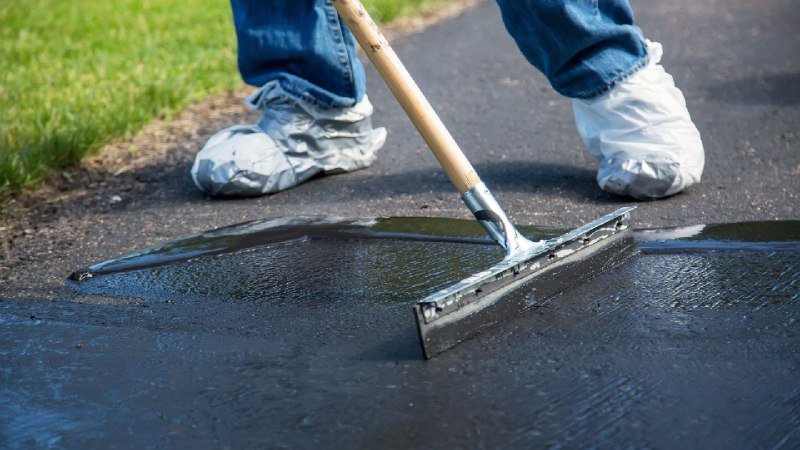
Step-By-Step Guide To Sealing Your Concrete Driveway
Sealing your concrete driveway is an essential step in ensuring its durability, longevity, and appearance. The process might seem daunting, but with the right approach, it can be a straightforward and rewarding task. Below is a detailed, easy-to-follow guide on how to seal your driveway, from preparation to post-sealing care, to make sure you get the best results.
Preparation
Before applying any sealer, it’s crucial to ensure that your driveway is clean and free of debris.
- Remove Dirt and Debris: Start by sweeping the driveway to get rid of loose dirt, leaves, and other debris. Use a broom or leaf blower for this task.
- Remove Stains: Oil, grease, and other stains can prevent the sealer from properly adhering to the surface. For oil stains, you can use a commercial concrete cleaner or a mixture of baking soda and dish soap. Scrub the stained areas with a stiff-bristled brush.
- Power Wash the Surface: To ensure that your driveway is as clean as possible, use a power washer to remove any remaining dirt or grime. Focus on cracks and crevices where dirt can build up. Be sure to allow the concrete to dry completely after cleaning.
Proper preparation is key to ensuring the sealer bonds well with the concrete, so don’t skip this step!
Application
Once your driveway is clean and completely dry, it’s time to apply the sealer. There are two common methods for this: using a paint roller or a sprayer.
- Choose the Right Sealer: There are different types of concrete sealers available, including acrylic, penetrating, and epoxy sealers. Select one that best suits your needs based on your climate and desired level of protection.
- Using a Roller: If you’re using a roller, choose a long-handled one designed for rough surfaces. Pour the sealer into a paint tray and evenly roll it onto the concrete. Work in small sections, ensuring complete coverage without puddling.
- Using a Sprayer: A sprayer allows for a faster and more uniform application, especially on large surfaces. Make sure your sprayer is compatible with the type of sealer you’re using. Spray the sealer in even, overlapping strokes to avoid streaks.
- Apply Multiple Coats if Needed: Some sealers require more than one coat. Be sure to follow the manufacturer’s instructions regarding the number of coats and drying time between applications.
Consistency is key in this step. Apply the sealer evenly to avoid patchy areas or an over-application that could result in a slippery surface.
Drying Time
After applying the sealer, it’s important to allow it to dry properly before using the driveway again.
- Initial Drying: Depending on the type of sealer used and the weather conditions, the surface may dry to the touch within a few hours. However, it’s best to avoid walking on it during this period.
- Curing Time: Most concrete sealers require at least 24-48 hours of curing time before you can drive on the surface again. Warmer weather conditions may speed up drying, while cooler or more humid climates may extend the drying time.
Patience is essential during the drying phase. Allow the sealer to fully cure to ensure maximum protection and to avoid any premature damage.
Post-Sealing Care
Now that your driveway is sealed, you’ll want to take steps to maintain it and maximize its lifespan. Here are a few simple post-sealing care tips.
- Regular Cleaning: Even with a sealer, it’s important to regularly sweep or hose down your driveway to remove dirt, leaves, and other debris. Regular cleaning will help prevent stains from setting in.
- Avoid Harsh Chemicals: Use mild cleaners when cleaning the driveway. Harsh chemicals, like de-icers and heavy-duty solvents, can break down the sealer and reduce its lifespan.
- Reseal Periodically: The frequency with which you’ll need to reseal depends on factors like climate and traffic levels. A good rule of thumb is to reseal every 2-3 years to maintain protection.
- Repair Cracks Promptly: Any cracks or damage to the surface should be repaired as soon as possible to prevent water from seeping in and causing further damage beneath the sealer.
By following these post-sealing care tips, you can keep your driveway looking great and functioning well for years to come. Sealing your concrete driveway is a vital maintenance step that will help protect it from the elements, extend its lifespan, and enhance its appearance. By following this step-by-step guide, you can ensure a smooth and successful sealing process, from preparation through to post-sealing care. Whether you’re using a roller or sprayer, taking the time to properly apply and maintain the sealer will save you time and money in the long run.

FAQs: About Is It Necessary To Seal A Concrete Driveway
How often should you seal a concrete driveway?
Generally, concrete driveways should be sealed every 2-5 years, depending on climate, traffic, and the type of sealer used. Driveways in harsh weather conditions or those exposed to heavy vehicle use may need more frequent sealing.
What are the signs that a driveway needs resealing?
Some common signs that indicate it’s time to reseal your driveway include fading color, a lack of water beading on the surface, visible cracks, or staining that’s harder to remove. If the driveway looks worn or water quickly absorbs into the concrete, it’s a good indicator that the sealer has worn off.
Is it worth sealing an old concrete driveway?
Yes, sealing an old concrete driveway can help restore its appearance and protect it from further damage. Before sealing, however, any cracks or damages should be repaired, and the surface should be thoroughly cleaned to ensure the sealer adheres properly.
What happens if you don’t seal a concrete driveway?
If you don’t seal a concrete driveway, it becomes more vulnerable to environmental damage, such as cracking from freeze-thaw cycles, staining from oils and chemicals, and erosion from rainwater. Over time, an unsealed driveway can develop more severe structural issues and require costly repairs.
How much does it cost to seal a concrete driveway?
The cost of sealing a concrete driveway depends on the size of the driveway and whether you choose to do it yourself or hire a professional. On average, DIY sealing costs around $0.15 to $0.25 per square foot, while hiring a professional can range from $1.50 to $3.00 per square foot.
Can I seal my concrete driveway myself, or should I hire a professional?
Sealing a concrete driveway can be a DIY project if you’re comfortable with the process. It requires cleaning the surface, applying the sealer evenly, and allowing it to dry properly. However, hiring a professional can save time, ensure even application, and reduce the risk of mistakes, especially if you’re unsure about the process.
How long does it take for the sealer to dry, and when can I use the driveway again?
Most concrete sealers take 24-48 hours to dry fully before the driveway can be used again. However, drying times can vary depending on the type of sealer, temperature, and humidity. It’s best to follow the manufacturer’s instructions for optimal results.
What are the different types of concrete sealers, and which one should I use?
There are two main types of concrete sealers: penetrating sealers and topical sealers. Penetrating sealers soak into the concrete and offer long-lasting protection against moisture, making them ideal for driveways exposed to weather. Topical sealers sit on the surface and provide enhanced color and a glossy finish but may require more frequent reapplication. Choose based on your driveway’s needs and the look you want.
Can sealing make my driveway slippery when wet?
Yes, some topical sealers can make a driveway slick when wet. To reduce slipperiness, you can choose a penetrating sealer, which doesn’t leave a surface film, or look for a topical sealer that includes anti-slip additives or mix-in grit to improve traction.
Is sealing necessary for all concrete driveways?
Sealing isn’t absolutely necessary for all concrete driveways. In regions with mild climates and minimal freeze-thaw cycles, a well-maintained driveway may not need sealing as frequently. However, if your driveway is exposed to harsh weather, heavy traffic, or chemical spills, sealing can significantly prolong its life and appearance.
Conclusion
Sealing your driveway may not be an absolute necessity for every homeowner, but it does offer substantial benefits in many cases. Whether or not sealing is needed depends on the specific conditions your driveway faces. If your driveway is exposed to harsh weather, heavy traffic, or is starting to show signs of wear and tear, sealing can be a smart investment. It not only helps to preserve the driveway’s appearance but also provides a layer of protection against cracks, stains, and other forms of damage. For those looking to maintain or enhance the curb appeal of their property, sealing can extend the life of the driveway, saving on costly repairs in the long run. Ultimately, the decision to seal should be based on the condition of your driveway and your personal preferences. If you notice your driveway showing signs of age, it might be time to assess whether a sealing project is right for you. Whether you choose to tackle the project yourself or seek help from a professional, taking action can ensure your driveway remains in good shape for years to come.
About the Author:
Mike Veail is a recognized digital marketing expert with over 6 years of experience in helping tradespeople and small businesses thrive online. A former quantity surveyor, Mike combines deep industry knowledge with hands-on expertise in SEO and Google Ads. His marketing strategies are tailored to the specific needs of the trades sector, helping businesses increase visibility and generate more leads through proven, ethical methods.
Mike has successfully partnered with numerous companies, establishing a track record of delivering measurable results. His work has been featured across various platforms that showcase his expertise in lead generation and online marketing for the trades sector.
Learn more about Mike's experience and services at https://theleadguy.online or follow him on social media:

